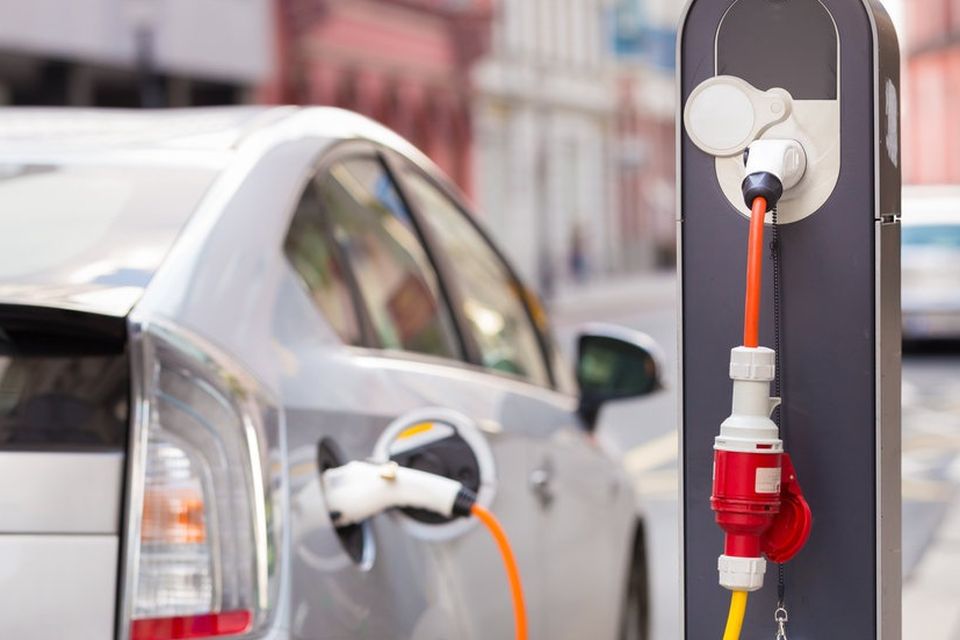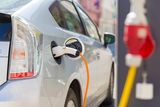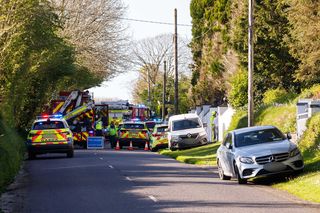Your Money: The drive towards electric cars
Despite large price tags, could green vehicles save you money in the long run?
Powering up: Politicians have ambitious targets for electric cars. Stock picture
Ambitious plans by the Government on climate change might prove too clever by half when it comes to electric cars.
Aiming for one million e-cars by 2030, and a 20pc decline in carbon emissions, the number sold to date this year stands at just 1,954, according to the Society of the Irish Motor Industry’s (SIMI) figures.
It’s far more than last year, which is great, but it would mean every single new car sold from today would have to be electric to meet that target, which is obviously unlikely.
New car registrations are down overall, adds SIMI, by 7.4pc compared with the first half of 2018.
Electric v Hybrid
There are three main types of car: fully electric (EV) charged by battery with no combustible (petrol/diesel) fuel at all. Popular examples include the Nissan Leaf, Tesla S or Renault Zoe.
Hybrids (HEVs) are powered by electric
battery, but burn fossil fuel also. They mostly charge themselves via the petrol engine, which can also provide some power to the car.
Plug-in hybrids (PHEVs) are charged at a charging point, at home or in garages. They have an electric range, but also a combustion engine.
Pros of going electric
– EVs are cheap to run, if not cheap to buy. A full charge overnight would cost around €1.60, according to AA Ireland. Public charge points are free to use and run by ESB, which has a great map on its website of them (esb.ie).
– There are grants to incentivise the switch. The SEAI administers a home charging unit grant of €600 (seai.ie), there’s VRT tax relief and lower motor tax. If your employer buys you an EV, you don’t pay BIK either.
– Lower emissions. An average petrol car produces 2.4 tonnes of CO2 a year; EVs, zero.
– EVs are hi-tech and high-spec. Many have smart cards instead of keys, touch screens, remote-starting apps, or seat and windscreen pre-heating.
– EVs are great around the city. They’re quiet (there’s a mandatory ‘noise’ introduced from this month by the EU for speeds over 20kmh) and with no gears, they are an extremely smooth drive.
– They’re low-maintenance and far less likely to break down.
Cons to electric
– Range anxiety is real. According to AA Rescue, 48pc worry about running out of power on longer journeys. “While we may not be at the stage of an affordable EV which could get you from one end of Ireland to the other and back on a single charge, for using the car to commute from home to work or down to the shops, an electric vehicle is a perfectly suitable option,” says the AA’s Conor Faughnan.
You can expect 150-300km on a fully charged car, depending on the model.
– EVs are pricey. See the table for some examples, but there is a government grant available (up to €5,000) when you buy. It only applies to fully electric cars and PHEVs.
– There aren’t that many to choose from. While major marques carry EVs, often it’s just one model.
What’s coming?
The climate plan includes the introduction of a scrappage scheme in the Budget to promote electric car purchases. New petrol and diesel cars will be banned from sale from 2030 and nobody will be allowed to own one at all from 2045. “Progressive changes to VRT should be focused at replacing older cars with new ones. This is the only way to start the transition to a low and ultimately zero-emission fleet,” says Brian Cooke, director general of SIMI.
Electric is the future, for our future, so there’s never been a better time to consider it.
Join the Irish Independent WhatsApp channel
Stay up to date with all the latest news















